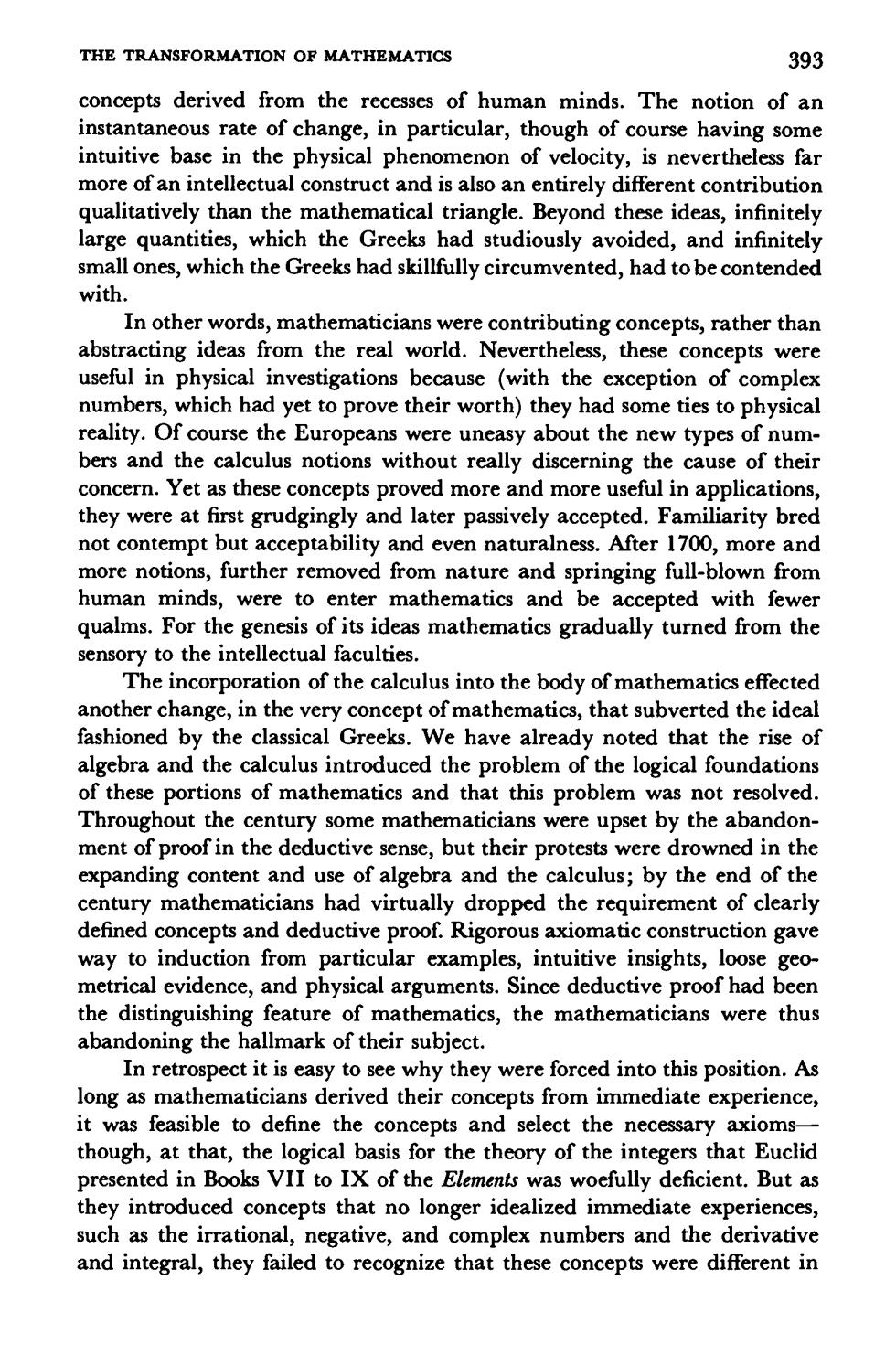正在加载图片...

THE TRANSFORMATION OF MATHEMATICS 393 concepts derived from the recesses of human minds.The notion of an instantaneous rate of change,in particular,though of course having some intuitive base in the physical phenomenon of velocity,is nevertheless far more of an intellectual construct and is also an entirely different contribution qualitatively than the mathematical triangle.Beyond these ideas,infinitely large quantities,which the Greeks had studiously avoided,and infinitely small ones,which the Greeks had skillfully circumvented,had to be contended with In other words,mathematicians were contributing concepts,rather than abstracting ideas from the real world.Nevertheless,these concepts were useful in physical investigations because (with the exception of complex numbers,which had yet to prove their worth)they had some ties to physical reality.Of course the Europeans were uneasy about the new types of num- bers and the calculus notions without really discerning the cause of their concern.Yet as these concepts proved more and more useful in applications. they were at first grudgingly and later passively accepted.Familiarity bred not contempt but acceptability and even naturalness.After 1700,more and more notions,further removed from nature and springing full-blown from human minds,were to enter mathematics and be accepted with fewer qualms.For the genesis of its ideas mathematics gradually turned from the sensory to the intellectual faculties. The incorporation of the calculus into the body of mathematics effected another change,in the very concept of mathematics,that subverted the ideal fashioned by the classical Greeks.We have already noted that the rise of algebra and the calculus introduced the problem of the logical foundations of these portions of mathematics and that this problem was not resolved. Throughout the century some mathematicians were upset by the abandon ment of proof in the deductive sense,but their protests were drowned in the expanding content and use of algebra and the calculus;by the end of the century mathematicians had virtually dropped the requirement of clearly defined concepts and deductive proof.Rigorous axiomatic construction gave way to induction from particular examples,intuitive insights,loose geo metrical evidence,and physical arguments.Since deductive proof had been the distinguishing feature of mathematics.the mathematicians were thus abandoning the hallmark of their subject. In retrospect it is easy to see why they were forced into this position.As long as mathematicians derived their conceptsfrom immediateexperienc it was feasible to define the concepts and select the necessary axioms- though,at that,the logical basis for the theory of the integers that Euclid presented in Books VII to IX of the Elements was woefully deficient.But as they introduced concepts that no longer idealized immediate experiences, such as the irrationa negative,and complex numbers and the derivative and integral,they failed to recognize that these concepts were different in